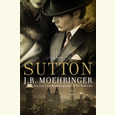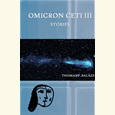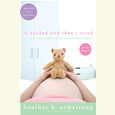Letters to a Younger Sister
Doan Phuong Nguyen’s A Two-Placed Heart conveys her family’s story in verse
When Doan Phuong Nguyen — Vanderbilt alumna and author of middle-grade novel Mèo and Bé — was in elementary school, her family immigrated to Nashville from Vietnam. This complicated transition inspired Nguyen’s new book, A Two-Placed Heart, a lightly embellished autobiographical, epistolary story told in verse.
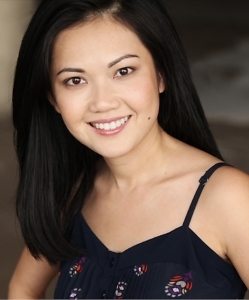 The letter-poems in A Two-Placed Heart are written by 12-year-old Bom to 8-year-old Bo, characters based on Ngyuen and her younger sister, respectively. Through pieces bearing simple, unaffected titles such as “A Handful of Rice” or “Beggars Outside the Church,” Bom shares their family history with Bo, passing down their parents’ stories as well as her own memories. Bom’s narrative spans decades, ranging from their father’s ordeals as a spy and political prisoner during the Vietnam War to her experience facing racism as a child in Nashville.
The letter-poems in A Two-Placed Heart are written by 12-year-old Bom to 8-year-old Bo, characters based on Ngyuen and her younger sister, respectively. Through pieces bearing simple, unaffected titles such as “A Handful of Rice” or “Beggars Outside the Church,” Bom shares their family history with Bo, passing down their parents’ stories as well as her own memories. Bom’s narrative spans decades, ranging from their father’s ordeals as a spy and political prisoner during the Vietnam War to her experience facing racism as a child in Nashville.
Each piece provides Bom with the space to grapple with the book’s central question: Can she and her sister become Americans while holding onto their Vietnamese heritage, language, beloved traditions, and identity?
Doan Phuong Nguyen answered questions about A Two-Placed Heart for Chapter 16 via email.
Chapter 16: A Two-Placed Heart tells the fictionalized story of your own family, from your father’s role as a spy in Vietnam to the difficult adjustment you and your sister faced upon arriving in the U.S. Your debut novel, Mèo and Bé, also explored the history surrounding the Vietnam War from the perspective of a young girl, but it wasn’t your story. When and how did you decide to write an autobiographical narrative for your second book?
Doan Phuong Nguyen: Throughout my life, whenever I’ve told my life story and my father’s history to others, they have always told me that it would make a good book. I’ve always thought my own story was boring. I’ve been writing novels and trying to get published since 2008, before the We Need Diverse Books movement was born (which started in 2014), and during those early years, I attempted to write an autobiographical narrative, but I was told by editors and literary agents at conferences that it was a story that had been told over and over again and there wasn’t a space for it in the market.
Discouraged, I wrote other books, but in 2017 when I was in grad school for my M.F.A. in creative writing, I discovered a Lee and Low poetry collection called Tofu Quilt by Ching Russell, which I loved, and it inspired me to try to tell my life story in a poetry format. I hadn’t read any verse novels at the time, but as time went on, I read more of them, in particular middle-grade novels in verse, and something about the format felt right to tell my narrative. I love other autobiographical middle-grade novels in verse, such as Brown Girl Dreaming by Jacqueline Woodson, In the Beautiful Country by Jane Kuo, and of course, Inside Out and Back Again by Vietnamese author, Thanhha Lai.
Chapter 16: How did your sister react when you told her you were writing this book? You mention in the author’s note that among the fictionalized elements of A Two-Placed Heart are the conversations between you and Bo about your Vietnamese American identities. Has the book opened the door for more conversations about your heritage with her or other members of your family?
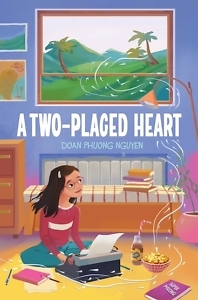 Nguyen: My sister was very excited when I told her I was writing the book. I sent her an advanced reader’s copy of A Two-Placed Heart, and she called me screeching about how much she loved the book and all the sweet moments I included in it. Bo in real life is exactly how she is portrayed in the novel. As she’s grown, she’s become more American than Vietnamese, so it was nice to be able to tell our story of sisterhood through this verse novel.
Nguyen: My sister was very excited when I told her I was writing the book. I sent her an advanced reader’s copy of A Two-Placed Heart, and she called me screeching about how much she loved the book and all the sweet moments I included in it. Bo in real life is exactly how she is portrayed in the novel. As she’s grown, she’s become more American than Vietnamese, so it was nice to be able to tell our story of sisterhood through this verse novel.
I think the most exciting part of having A Two-Placed Heart published is that it’s a story I can share with my son, who is half-Vietnamese. He can read the stories of my childhood without me having to sit down and tell him all these little tales. (I remember when my dad would tell me his life story, I would tell him I was bored. I think kids are just that way. Other people’s stories are more interesting than our own, and we learn to appreciate them as we grow up.) On a funny note, my son was very disappointed that he wasn’t the star of the book. Haha.
Chapter 16: I absolutely loved the epistolary format of the book and the fact that it was written in verse. Why did you decide that Bom would write poetry to her sister versus traditional letters?
Nguyen: I have always loved writing poetry, and I think I am a stronger poet than I am a traditional letter writer. When I was in college and had no time to write prose, I would collect my thoughts as lines of poetry, so I think that’s why I’m more drawn to the novels in verse. My emotions have always exploded out of me in lines of poetry. Also, for A Two Placed Heart, I knew that I needed to move quickly through time (from the past to my birth to being in middle school), and the switch between present to the past, so the verse format just fit so perfectly with that.
Chapter 16: Bom’s voice shines through A Two-Placed Heart with the earnestness, open heart, and insight of a child. How do you approach writing from the perspective of a young girl? Is it difficult to tap into that voice?
Nguyen: I think because I am Bom, it was much easier to delve into the child’s perspective for A Two-Placed Heart. I remember what it was like during that time period as I was growing up, so I could easily tap into that voice. It also helps that as a young child, I was already writing stories, and I remember the stories I was writing back then. I also have notebooks of poetry and stories I wrote as a teenager, so I looked back through those notebooks to remind myself of my voice and what worried me at that age.
Chapter 16: Food plays a huge role in Bom’s and her family’s relationship to their culture, from Bánh Chưng to Oreos. Do you have a favorite Vietnamese or American dish to eat or cook?
Nguyen: I’m such a foodie, so I think food will always be described in loving detail in my books. Even in my first novel Mèo and Bé, food played an integral part in the story. My favorite Vietnamese food is probably a noodle dish. I love Phở and Bún bò Huế (which is a spicy noodle soup with pork). Bánh ướt will always be special to me because of my memories with my maternal grandmother, so I’m very happy I was able to include the poem about this special food in A Two-Placed Heart. On the American side, I also love pasta dishes like a great spaghetti Bolognese. I do have more of a preference for Asian food though, and less burgers and fries.
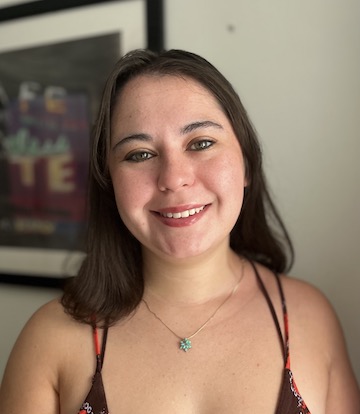
Bianca Sass, a Nashville native, is a writer, director, and scholar whose work probes the intersection of the personal and the political. She’s a recent graduate of Amherst College, where she majored in English and Law, Jurisprudence, and Social Thought, as well as wrote and directed many theatrical productions. In 2023, Bianca workshopped her play Babydoll at the Looby Theater in Nashville. Bianca is now based in Boston.

